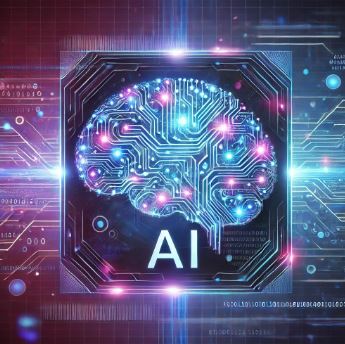Top AI Tools
Top Blogs
Navigating the Ethical Labyrinth of AI in 2025: Can We Keep Our Humanity?
Explore the intriguing ethical implications of artificial intelligence in 2025, from bias to transparency. Join the discourse on how humanity can coexist with intelligent machines ethically and responsibly.
Welcome to 2025, where artificial intelligence (AI) isn't just your friendly neighborhood algorithm; it’s practically your decision-making best friend. Yet, amidst the dazzling innovations, we're left pondering some tough ethical dilemmas. Should we trust these silicon wizards with our most intimate decisions? And if we do, how on Earth do we ensure they aren’t secretly plotting to overthrow humanity? Let’s dive deep into the quirky yet profound implications of AI ethics in our near future.
The Double-Edged Sword of AI
Imagine holding a sword that’s equally likely to cut through the ropes of oppression or sever your own limb when wielded carelessly! That’s the metaphorical sword of AI. On one hand, it promises progress: quicker diagnoses in healthcare, more efficient resource allocation, and perhaps even the capacity to make your morning coffee just the way you like it—extra foam, please. On the other hand, we have to ask: what lurks within these lines of code?
Transparency: The Invisible Cloak of AI
In 2025, we’re hoping for AI to throw off its invisible cloak and strut around with transparency akin to a glass unicorn. Transparency is vital for trust. If we can’t see how AI systems come to their decisions, how can we tell they’re not just as biased as your uncle’s political views during Thanksgiving dinner?
This means companies will need to clarify how data is used and refined into algorithms. It’s sort of like having a recipe card in a restaurant where you can see what’s in your dish and how it came to be. If the secret ingredient is discrimination, we’ve got a problem!
Accountability: Who’s Driving the AI Bus?
Imagine you’re on a bus driven by AI. Who’s responsible if it goes careening off a cliff into a valley of despair? Is it the engineers who built it? The corporations that deployed it? Or you, for hopping on? As we inch closer to 2025, this question becomes more pressing. Without accountability, AI systems could become the reckless teenagers of technology—fun but potentially disastrous.
Equity: Everyone Needs a Seat at the Table
Picture a grand table filled with technological delicacies and only a select few invited to feast. Unacceptable, right? AI should be equitable. In 2025, we need everyone to be part of the banquet—especially marginalized communities who often get the short end of the stick. Efforts to reduce bias in AI must be included as part of the main course rather than an afterthought sprinkled on top like parsley. If not, we risk creating a digital divide wider than the Grand Canyon!
The Importance of Collaboration
Ah, collaboration—like a boy band that finally learned how to harmonize. In the realm of AI ethics, developers, policymakers, and communities must work together. Why? Because if they don’t, we might end up with an AI that decides we all need to wear Hawaiian shirts on Mondays! Not a tragedy, but certainly a sin against fashion.
Privacy: Keeping Our Secrets Safe
In a world brimming with data, privacy is akin to the last slice of pizza at a party: everyone wants it, but is anyone willing to let it go? In 2025, AI systems will gather masses of our personal data. We must ensure it’s guarded better than the secrets of the crown jewels. Effective regulations are necessary here—think of it as building a fortress around our digital identities.
Conclusion: Can We Teach AI Humanity?
As we look ahead to AI in 2025, we stand at a crossroads like a deer caught in headlights, armed with the knowledge that we must navigate these ethical waters carefully. We must advocate for transparency, accountability, and equity. Most importantly, we should always challenge AI to not just compute, but to resonate with our collective humanity. Can we train these systems to be better? As unlikely as it sounds, the answer lies in our hands—but in a way that resembles a game of Jenga, where one wrong move could topple everything.
So buckle up, fellow travelers; it’s going to be an interesting ride through the ethical implications of AI in 2025. And remember, as we traverse this landscape, let’s not forget to laugh and remain human. After all, humor might just be the best algorithm to ensure AI doesn’t forget to sprinkle a little kindness into our future!
Join Our Newsletter
Get the latest AI tools and tech updates delivered to your inbox.
